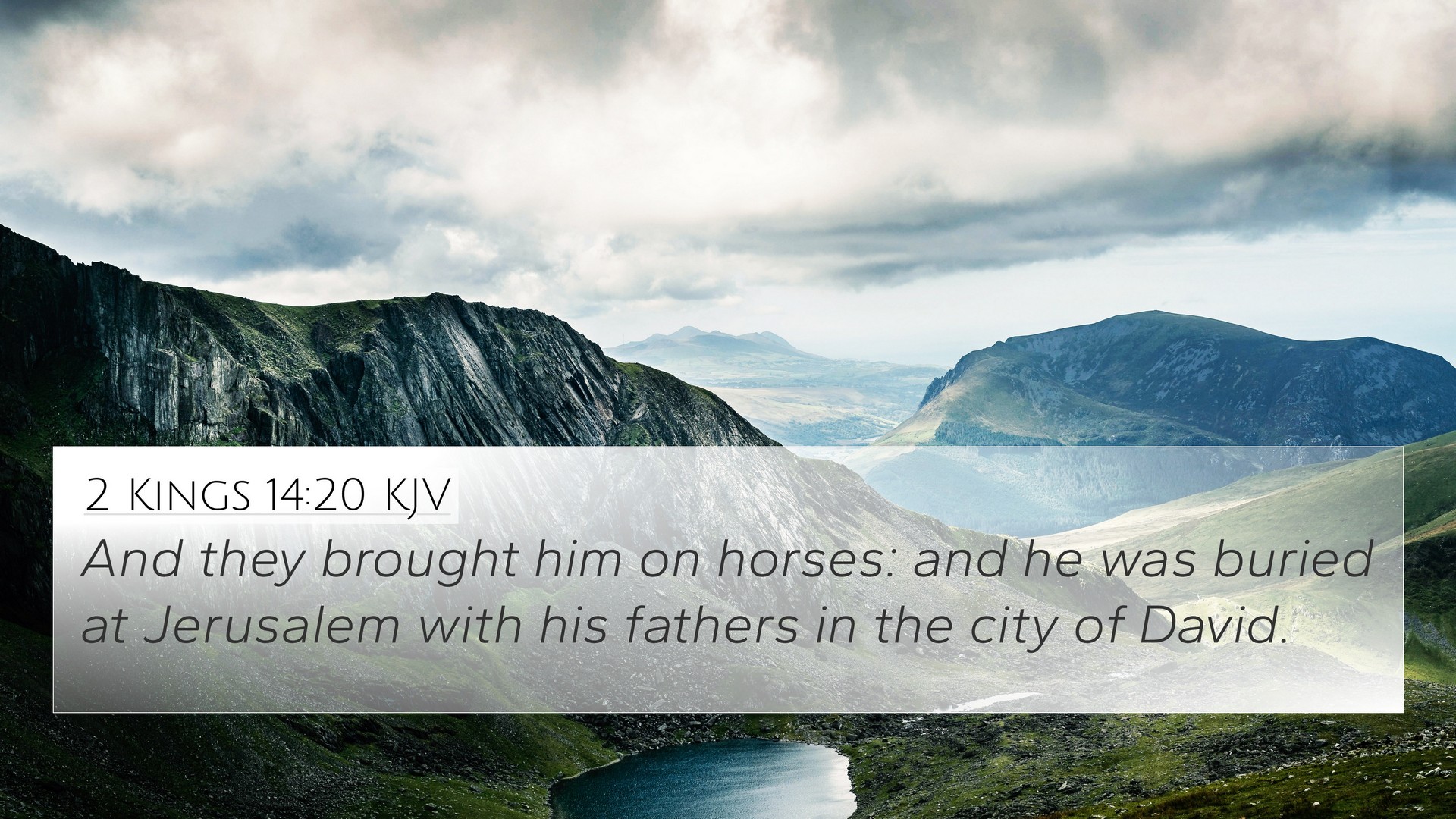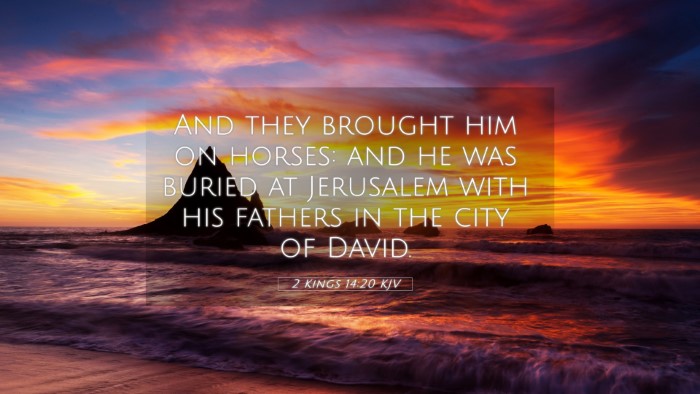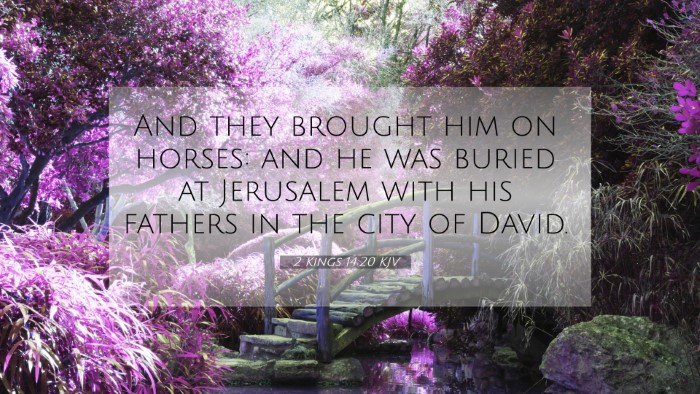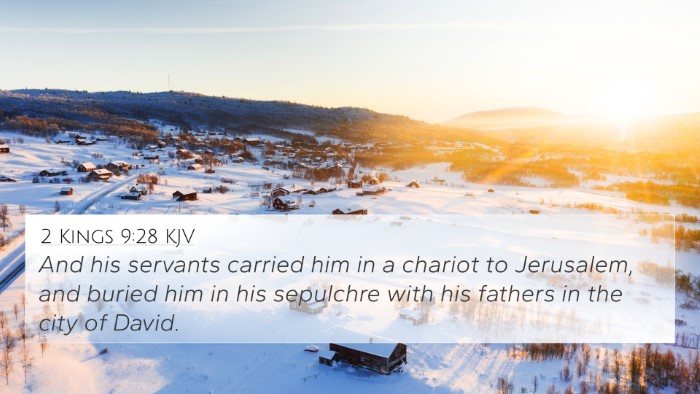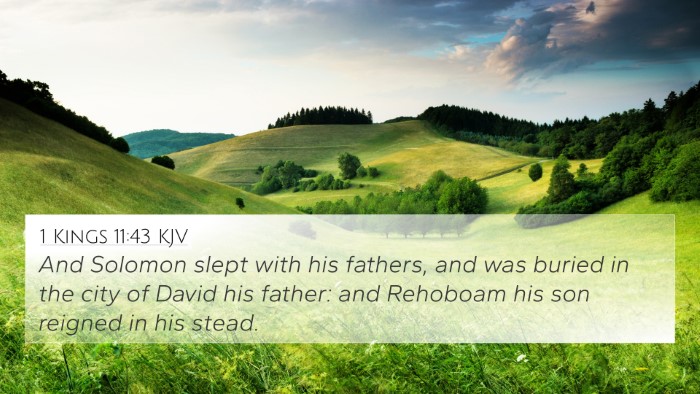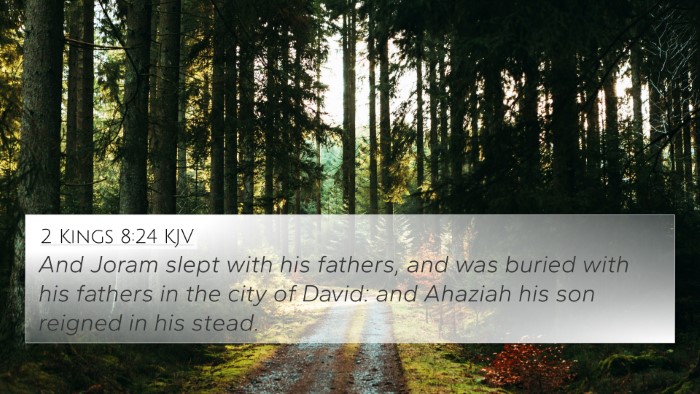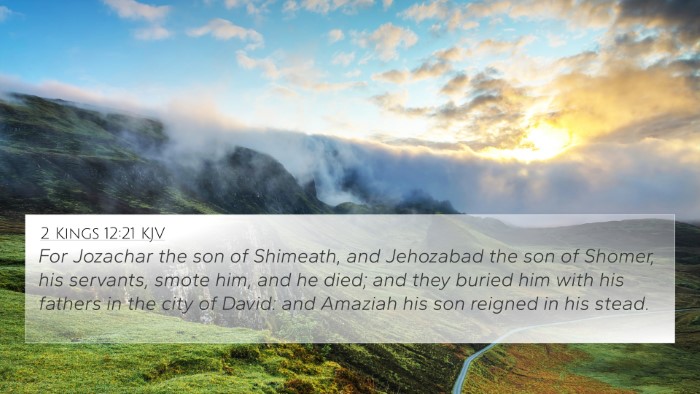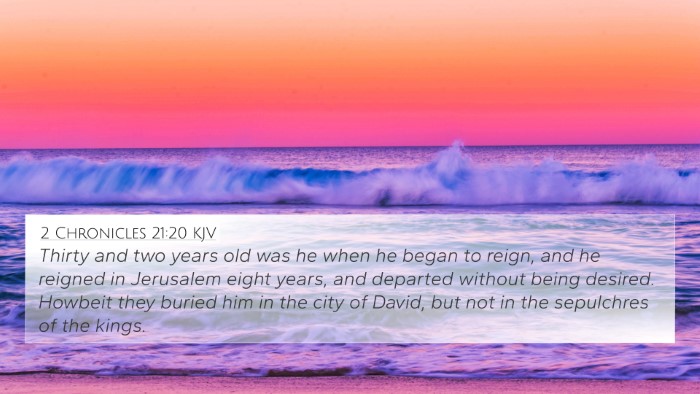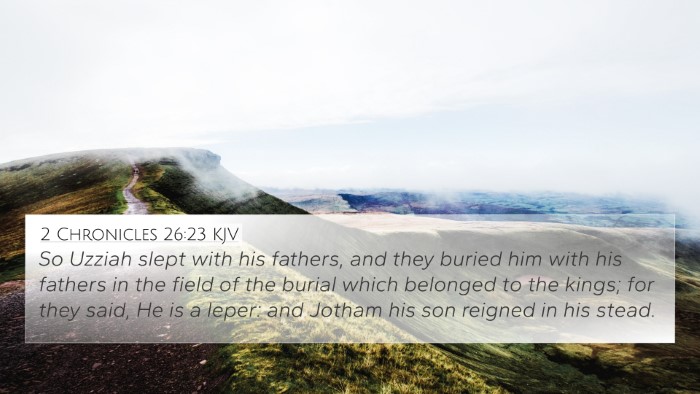Understanding 2 Kings 14:20
Verse: "And they brought him on horses: and he was buried at Jerusalem with his fathers in the city of David." (2 Kings 14:20)
Summary and Meaning
The verse describes the burial of King Amaziah of Judah, emphasizing the honor afforded to him as he is interred in the city of David.
Commentary insights from Matthew Henry, Albert Barnes, and Adam Clarke offer a multifaceted understanding:
-
Matthew Henry: Henry reflects on the significance of burial in the royal lineage and the distinction of being laid to rest among one’s ancestors.
-
Albert Barnes: Barnes notes the honor associated with being buried in Jerusalem, particularly in the city of David, which indicates a royal and noble death.
-
Adam Clarke: Clarke emphasizes the transport of Amaziah's body on horses as a symbol of respect, highlighting the transition from his tumultuous reign to a royal resting place.
Connections Between Bible Verses
Exploring the themes in 2 Kings 14:20 reveals links to other relevant scripture passages that enhance our understanding of royal burial customs and God's providence in kingship. Below are some notable Bible verse cross-references:
- 2 Chronicles 25:28: This verse similarly details the burial of Amaziah, reinforcing the historical account.
- 1 Kings 2:10: Discusses David's culminating life and death, serving as a parallel to Amaziah's story.
- 1 Kings 11:43: Highlights how the lineage of kings was honored through burial practices.
- 2 Kings 9:28: Chronicles the burial of another king, indicating the importance of burial locations.
- Acts 13:36: Explains King David's burial, linking to the reverence shown to kings in Judeo-Christian tradition.
- 2 Samuel 1:17-27: David's lament for Saul reflects on respectful attitudes towards fallen leaders.
- Hebrews 11:32-34: May allude to the experiences of kings and those of faith who honored God amidst their reigns.
Thematic Bible Verse Connections
The theme of honor in burial reflects God's perspective on leadership and the legacy left behind. For comparative analysis:
- Burial Customs: Reflects the beliefs in life after death and the importance of honoring ancestors.
- Respect for Royalty: The ceremonial aspects of burial symbolize respect in leadership.
- God's Sovereignty: The positioning of kings in death illustrates divine selection and purpose.
Utilizing Cross-References for Deeper Understanding
Engaging in cross-referencing Biblical texts not only aids in comprehension but also enhances the interpretation of themes present in scripture. Consider employing these tools for Bible cross-referencing:
- Bible Concordance: A useful tool to trace themes and words across scripture.
- Bible Cross-Reference Guide: Helps in identifying spiritual parallels and contrasts.
- Cross-Reference Bible Study: Methodology for connecting various passages for thematic exploration.
- Comprehensive Bible Cross-Reference Materials: Access to broader resources for deeper studies.
Conclusion
In summary, 2 Kings 14:20 serves as a poignant reminder of the significance of honoring leaders in death, showcasing the dignity afforded to Amaziah as he joins his forebearers. This verse, situated within a context of ancient customs, invites readers to explore associated scriptures to uncover the profound interconnections woven throughout the Biblical narrative.
Further Study Suggestions
To expand on this verse, consider exploring:
- How to find cross-references in the Bible: Techniques for discovering related verses.
- Identifying connections between Old and New Testament: Observing the continuity of themes.
- Comparative study of Pauline epistles: Understanding parallels between writings.
